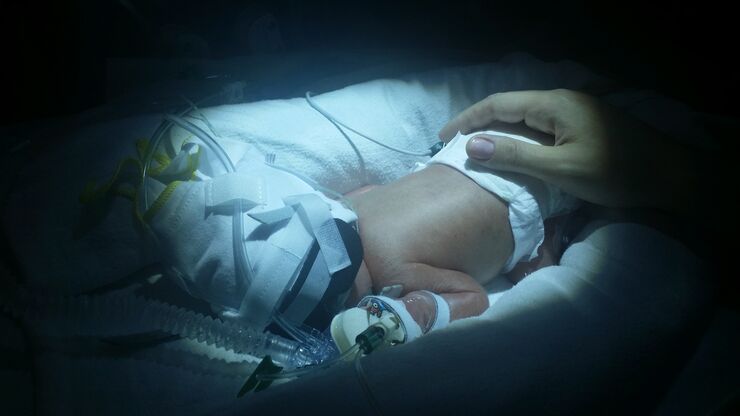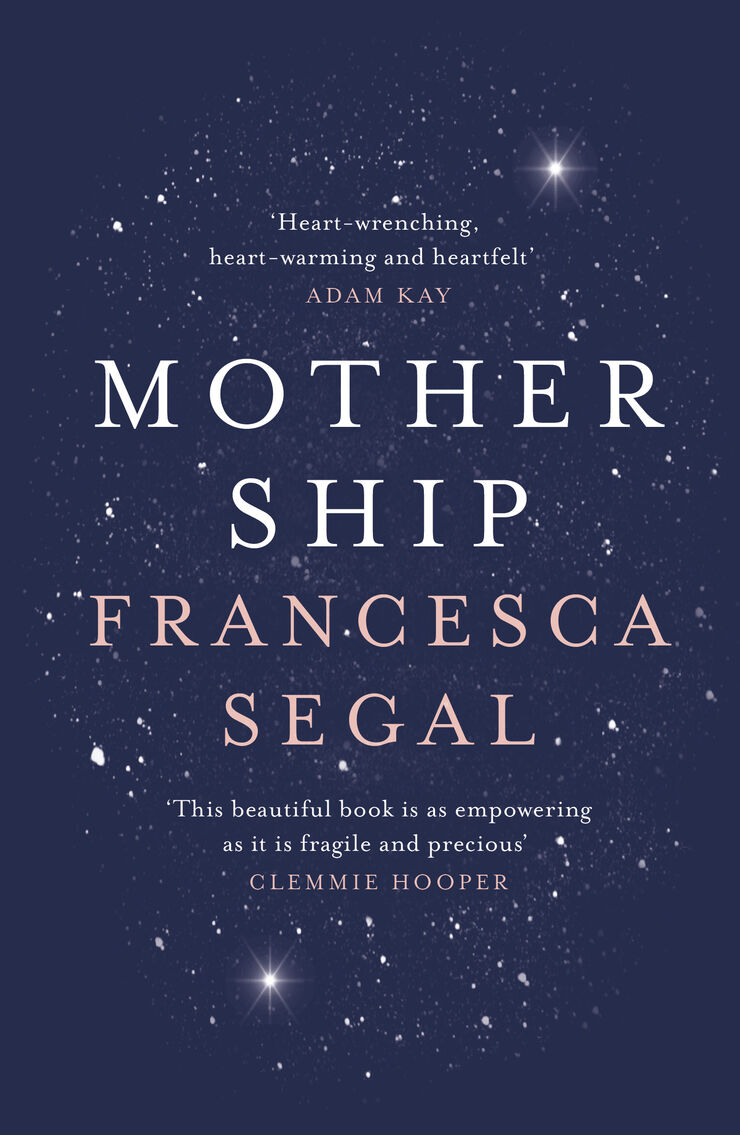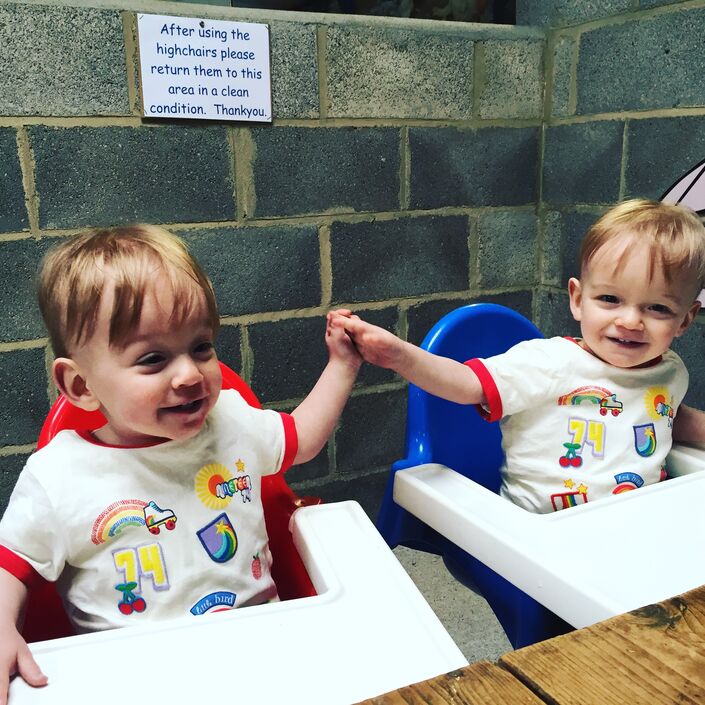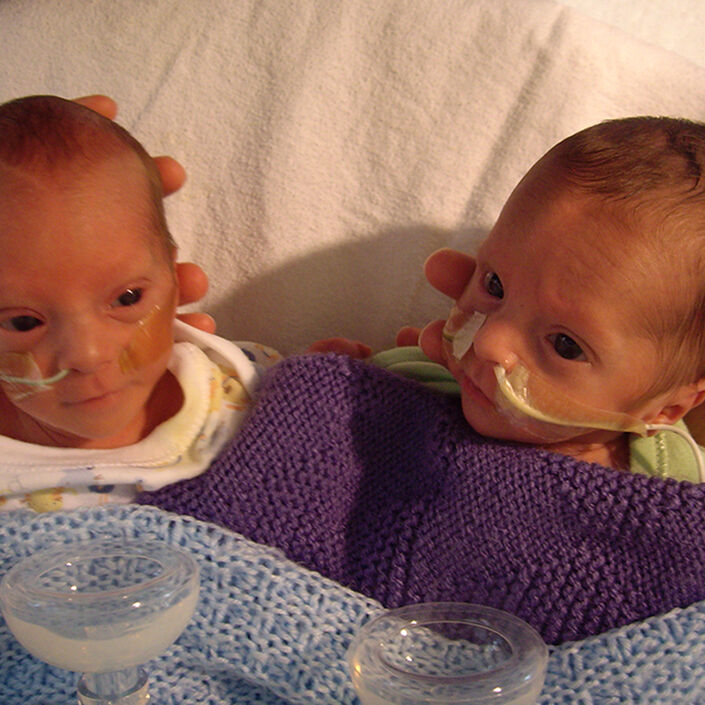I went to a twin talk when I was only a few months pregnant, covering everything from pregnancy to prematurity. On the latter they were reasonably thorough, warning us that fewer than half of twin pregnancies go over 37 weeks. But I took in very little of that lecture, despite my diligent notes. I still couldn’t quite believe I was pregnant at all, let alone with twins. What stayed with me most vividly was a video in which a heroic and indefatigable mother tandem breastfed two bonny and squirming eight-month-olds, which looked as much like herding cats as anything I have ever seen. Curious, distractible and contrary, the babies cooed and waved and arched their backs like trout, gazing in every direction except that crucial one, the direction in which lay their dinner. Eventually they both latched on and fed with gusto, but not after a great many shenanigans. Everyone involved looked happy, if a little tired, but it seemed unthinkable that any of us could fight such a battle more than once a week, let alone six to ten times a day. That mother on the video became muddled in my memory with the woman in Samuel Beckett’s Happy Days – just a head, or in her case a head and a pair of full breasts emerging from the huge pile of pillows required to position two babies. It was comical and ludicrous. But then comical and ludicrous pretty much encapsulated how I felt about having twins in the first place.
I was only eight weeks pregnant when a sonographer gave me a slow smile and asked, with the impeccable timing of someone who has delivered such news before, whether I had any twins in the family. I laughed, in delight and disbelief. It added yet another risk factor to my pregnancy – I was already over 35 and a first pregnancy – but I was uncharacteristically optimistic. That lecture had covered prematurity in reasonable detail, yet it still came as a shock when, at 29+6 weeks I began to haemorrhage.




